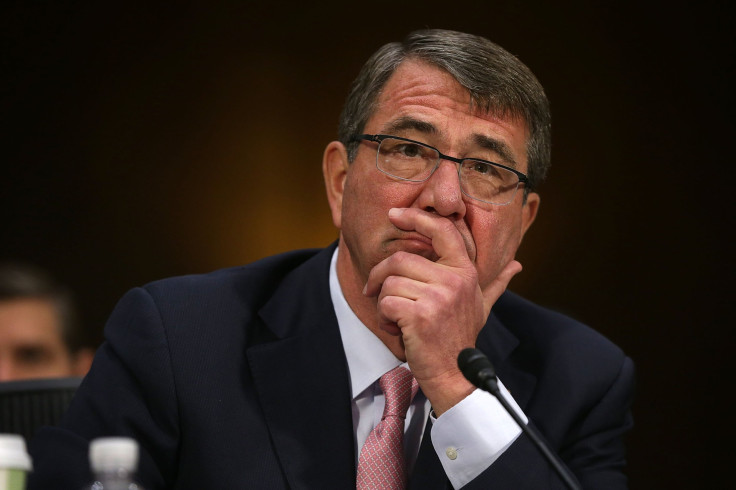US Defense Secretary Ashton Carter Used Personal Email Account For Official Work: Report

Defense Secretary Ashton Carter used his personal email account for at least two months to send work-related emails, a practice that violates the rules of the Department of Defense, the New York Times reported. The revelations follow a similar controversy involving Hillary Clinton when she was the secretary of state from 2009 to 2013.
The Times report cited White House and Department of Defense officials, as well as copies of Carter’s emails obtained by it. It was not clear when Carter stopped using his personal email account, but White House chief of staff Denis R. McDonough got to know about Carter's practice in May, an official told the Times. McDonough then asked White House Counsel’s Office to get in touch with the Defense Department to question Carter’s move.
“After reviewing his email practices earlier this year, the secretary believes that his previous, occasional use of personal email for work-related business, even for routine administrative issues and backed up to his official account, was a mistake,” Peter Cook, a spokesman for Carter told the Times, adding: “As a result, he stopped such use of his personal email and further limited his use of email altogether.”
It was not clear how many emails Carter sent or received, but the revelation about another top government official using personal email may lead to further attacks from the Republicans, who could question the lax safeguards on sensitive government information following Clinton's email scandal.
The Times filed a Freedom of Information Act in September to gather details on all the emails Carter sent or received from his personal account. The Defense Department released 72 official emails in November that were sent or received by Carter. The emails also showed that he was sending and receiving mails from his Chief of Staff at the time, Eric Fanning, and other top government officials on their official email addresses.
According to the Times report, all government officials occasionally use their personal emails for work, but Carter used his personal account to email his close aides about a variety of work, including speeches, meetings and news media appearances. One such email, cited by the Times, showed Carter discussing how he accidentally placed a notecard in a “burn bag,” which is used to destroy classified information.
Cook refused comment on whether the practice violated Defense Department’s email policies, and said that Carter used the emails only to communicate with his friends and family. However, a former aide to Carter told the Times that he used his personal account so frequently that his colleagues feared that his account may be hacked.
“Any email related to work received on this personal account, such as an invitation to speak at an event or an administrative issue, is copied or forwarded to his official account so it can be preserved as a federal record as appropriate,” Cook said, according to the Times, adding: “Secretary Carter strongly prefers to conduct communications on the phone or in person, and like many of his predecessors rarely uses email for official government business. The secretary does not directly email anyone within the department or the U.S. government except a very small group of senior advisers, usually his chief of staff.”
In 2012, the Defense Department signed into law a policy barring all government employees from using their personal emails, despite their rank. Last year, President Barack Obama signed a new law that barred all federal officials from sending or receiving work related emails on their personal account, but allowed them to use personal accounts if the mails were forwarded or copied directly on a government account within 20 days. While a spokesman for Carter claimed that this rule was followed, he did not provide any proof for the claim, the Times report said.
© Copyright IBTimes 2024. All rights reserved.












